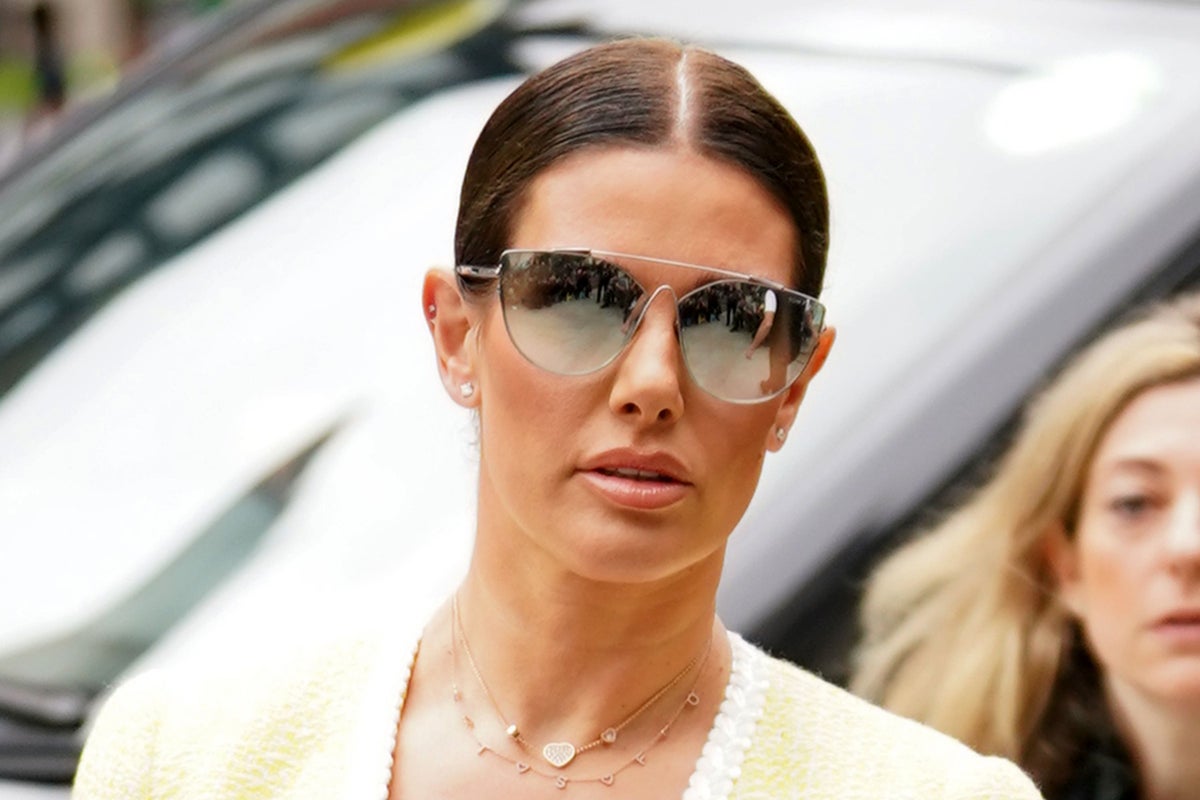
Rebekah Vardy said she hopes to show there is a “light at the end of the tunnel” by speaking about her experiences growing up as a Jehovah’s Witness.
In a Channel 4 documentary, the 41-year-old media personality alleges she was sexually abused by someone in the community between the ages of 11 and 15, which she says was covered up by “elders” – senior male religious leaders.
The wife of footballer Jamie Vardy told Good Morning Britain (GMB) on Tuesday she was “scared of the consequences” of speaking out about the abuse due to “the fear of bringing shame on to the family”.
She said: “I think I realised that I’ve probably only just scratched the surface. I think my story isn’t unique and there’s going to be plenty of others, as have already come out, that will continue to come out.
“I found this part of my life a bit of an obstacle but I wanted to use this obstacle to create an opportunity to help other people that have been in similar situations and just hopefully show that there’s light at the end of the tunnel.”
Jehovah’s Witnesses is a Christian denomination with about 8.5 million followers worldwide.
It believes the destruction of the world is imminent, imposes a strict moral code on members, including by saying homosexuality is a sin, and punishes those who deviate from its beliefs by “disfellowshipping” them, ostracising them from the community.
Vardy also says during the documentary that when she was growing up in Norwich, Norfolk, she was shunned by the community alongside family members after her parents’ divorce.
She says she told her mother, her family and the Jehovah’s Witness community about the abuse and a meeting was called when she was a teenager.
Vardy told GMB that talking to her mother about the abuse was the “most harrowing experience” and led to a “breakdown in their relationship and her becoming a “bit of a crazy, rebellious teenager”.
Asked about long-term psychological effects, the mother-of-five said: “I’ve created part of myself that is really strong now. I have a lot of barriers. I’m quite unemotional. I’m not a very emotional person.
“I think a lot of that has to do with what I went through in my past… It was an obstacle in my life and I want to use my experiences to help other people.”
Vardy also recalled feeling “isolated and lonely” as well as being “bullied quite badly as a child because we were made to feel different”.
She said: “We had to stand out from everyone else and have really strong (faith) but I lost so much time in my childhood because of this religion and it wasn’t pleasant.”
Vardy added: “My advice to myself would have been, ‘Keep fighting. The truth will come out in the end and never ever, ever give up’.”
During the documentary, Vardy meets former members of the Jehovah’s Witnesses, including a victim of child abuse and the mother of a man who died by suicide after being expelled by the organisation.
She also says she believed she would die at Armageddon if she was not “perfect” and recalls “upsetting” images shown to her depicting the end of the world, which still cause her nightmares as an adult.
In a statement to the PA news agency, Jehovah’s Witnesses said: “Elders are directed to report an allegation of child sexual abuse to the police ‘even if there is only one complainant and no other corroborating evidence’.”
The group said millions of Jehovah’s Witnesses “enjoy entirely normal lives” and courts have rejected that its adherents cannot “think for themselves”.
It said it is “simply misleading and discriminatory” to call their religion “controlling”.
It said it is “concerned” that discussions of “so-called shunning” will imply it causes or contributes to “smoking, drinking and suicide”.
Rebekah Vardy: Jehovah’s Witnesses And Me is on Channel 4 at 10pm on Tuesday.







